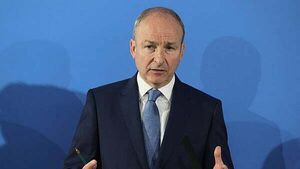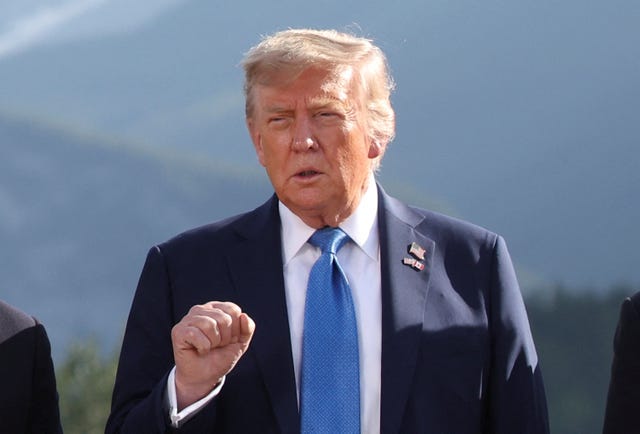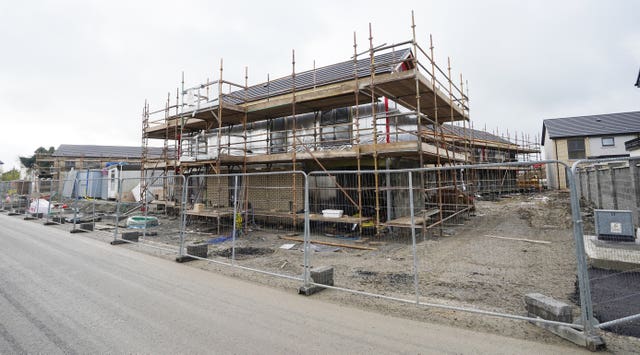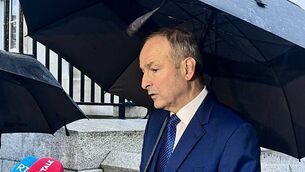Taoiseach says ‘nobody wins’ if EU-US tariff dispute ensues

By Cillian Sherlock, PA
“Nobody wins” if the US-EU tariff dispute continues, the Taoiseach has said, as he said the bloc is focused on arriving at a “negotiated settlement” with Donald Trump’s administration.
Micheál Martin said it is “extremely important” to be able to provide certainty to the market and investors.
The EU is seeking a trade deal with the US before July 9th.
Speaking to reporters in Brussels, Mr Martin said: “Every effort has to be made to get a landing zone that we can live with.
“It’s not ideal. It’s not optimal. Europe doesn’t want tariffs, but we have to deal with the situation that is before us.”
He added: “If a tariff dispute ensues, nobody wins. There is no painless tariff war.”

Mr Martin, who stressed that the EU had to be united in its negotiations, said he detects an “atmosphere” that is focused on getting a deal.
The Taoiseach’s comments come against the backdrop of the latest report from the Economic and Social Research Institute (ESRI), which said the strength of the economy will be tested by domestic challenges and a period of global uncertainty.
While the Irish domestic economy appears to be in a relatively robust state, the ESRI said “notable international and domestic risks are clouding the outlook”.
It said global uncertainty has risen to “very elevated levels” given the fallout from changing US trade policy and other geopolitical developments.
It added: “This increase in uncertainty is likely to weigh on investment and consumer spending.”
The body noted that Ireland has been somewhat insulated from tariffs so far because of the exclusion of pharmaceutical goods.
It added that the relative importance of services in total Irish exports provides “short-term protection from tariff impacts but raises concerns about non-tariff barriers to services trade being imposed in future US-EU negotiations”.
The ESRI said it expects GDP to grow by 4.6 per cent in 2025 and 2.9 per cent in 2026, with exports growing by 5.4 per cent and 3.3 per cent respectively.
However, this would be revised downwards if trade wars with the US intensify.
It said it expects the domestic economy to grow at a relatively slower pace than in previous reports.
The baseline forecast is for Modified Domestic Demand growth of 2.3 per cent in 2025 and 2.8 per cent in 2026. Inflation is projected to average 2.0 per cent in 2025 and 2.1 per cent in 2026.
The ESRI said there are two main challenges to the public finances – that they are heavily dependent on windfall corporation tax receipts and residential construction is not accelerating sufficiently quickly to meet housing need.
Mr Martin said the economic growth projects reflect the challenges of the trade and tariff dispute.
“That has caused ripples all over the world – and that’s why we favour an agreement by July 9th.”
He said that could change the trajectory of the economic forecasts.

The ESRI also lowered its forecast for housing completions to 33,000 in 2025 and 37,000 in 2026, citing ongoing structural challenges, including production costs, supporting infrastructure, financing, and labour shortages, as contributing factors in its decision.
These are significantly below the Government’s own targets to deliver 303,000 homes by the end of 2030, scaling up from 41,000 this year to 43,000 in 2026, reaching 60,000 in 2030.
Asked about the ESRI forecast, Mr Martin said Government is putting “fundamental changes and measures” in train to deliver a sustained increase in housing over the “next number of years”.
“That is the objective on housing. It is the number one issue facing us, and it is the big social and economic priority of government and of the country.”





